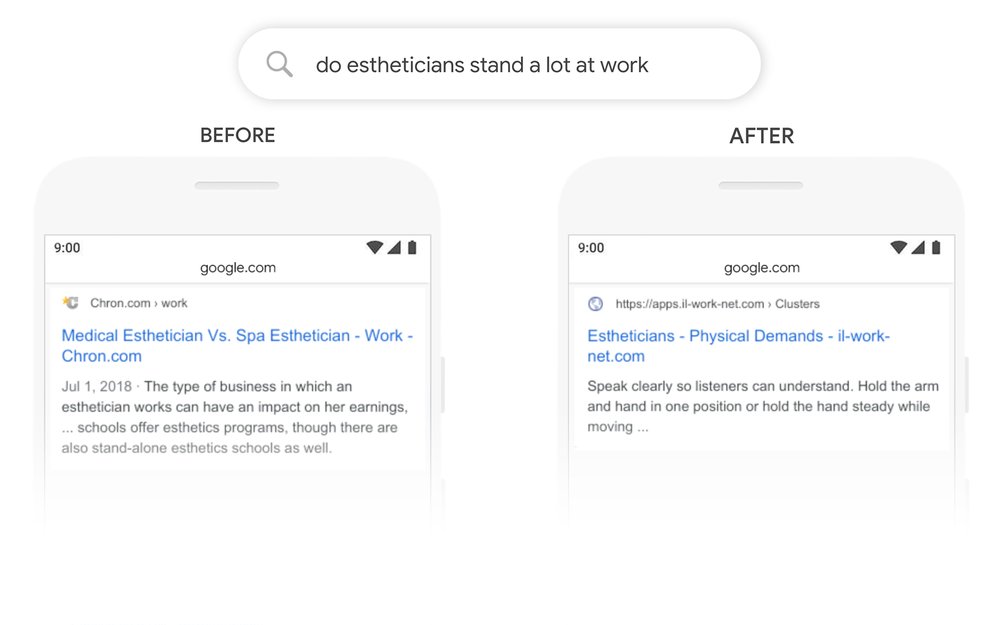Over the past five years, Google has increasingly relied on machine learning to improve its search — basically, Google developers have been teaching computers to understand how humans search and what those searches mean. First, they introduced “RankBrain” in April 2015, which was a core algorithm update that used machine learning to sort out the most relevant results for a given query. This was a huge change in how search worked, and it made it much harder to game the SEO system, because it was all about what the user wanted — not which pages were "optimized" using tactics like keyword stuffing.
Last week, Google announced that it has just rolled out BERT (Bidirectional Encoder Representations from Transformers). They claim that it’s the biggest leap forward in search in the past five years, and one of the biggest changes in the history of search. Just how big? Google says it will impact 1 in 10 of all search queries.
What is BERT? Well, it’s a lot like RankBrain in that its main goal is to better understand a searcher's query and find the best content match. But unlike RankBrain, Google search with BERT not only looks at a word in a query but also compares it to the words before and after and then tries to understand the context of the word or phrase.
How does it work? By using state of the art pre-training for natural language processing (NLP). Google provided some real-world examples on how search results are different when they focus on query intent and not just associated keywords. Check it out:

As you can see, before BERT, the search query pulled up a result related to estheticians but didn't really answer the search query. The after result matches the search intent almost exactly.
While Google admits that understanding language and intent is always going to be challenging and that BERT isn’t perfect, machine learning is certainly helping them in their quest to improve search.
When writing content, start with search.
So what does this mean for content creators? When writing content, start with search. What questions is your target audience asking? How can you create content that answers those questions perfectly? Think about associated topics that you can create content around to answer their follow-up questions so that you can become a knowledge leader in your space. Make sure you are using structured data to help Google understand your content more easily. Most importantly, don’t try to game the system. We assume that, like RankBrain, you will not be able to optimize for BERT by overusing keywords or trying to write for the algorithm. The best way to optimize your content is to focus on providing value and, above all, write for humans.



